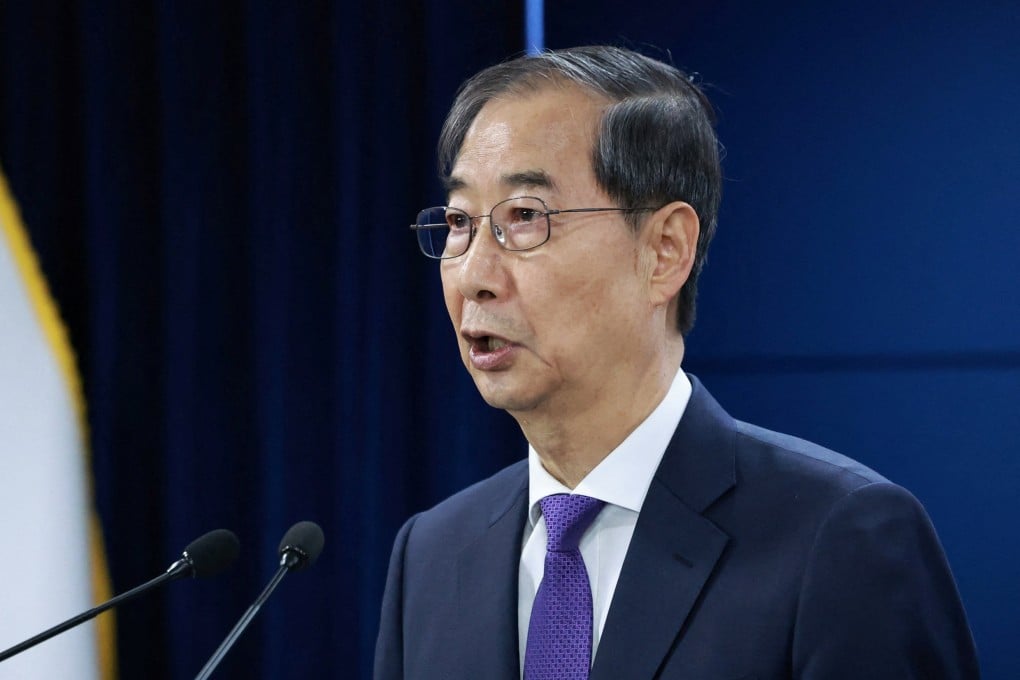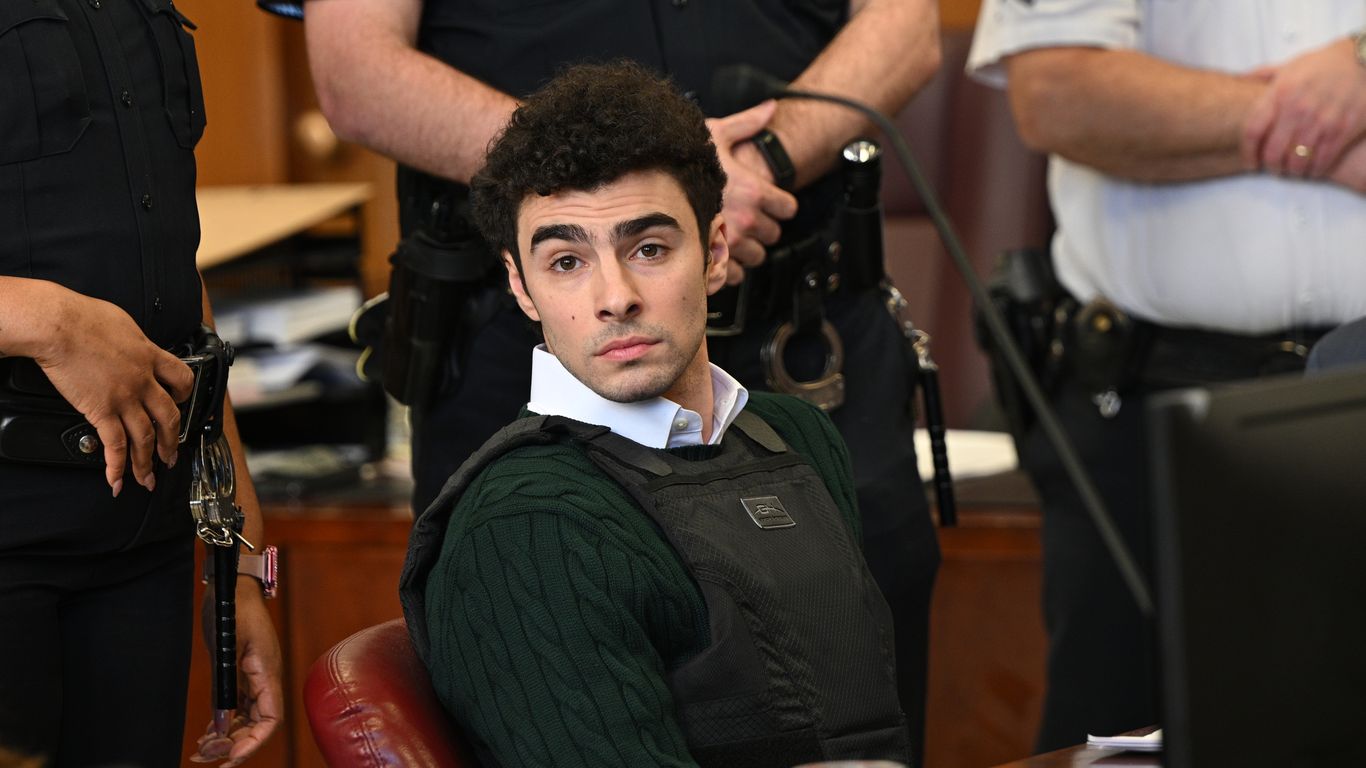In President Trump’s first 100 days in office, the country has gotten a taste of the mass deportation agenda he has pledged to carry out over the next four years.Trump has charted an ambitious course, pledging everything from finished construction of his border wall to the most deportations the country has ever seen. Border encounters have dropped significantly, with March representing the lowest number on record.
Still, his controversial policies have Trump regularly clashing with — and complaining about — the courts. “If we don’t get these criminals out of our Country, we are not going to have a Country any longer,” he said in a recent social media post complaining about a string of legal losses on immigration issues.To advocates, the first 100 days show an escalation from Trump’s first term, one in which migrants, including those who arrived through legal pathways, are now top targets in a process that has chipped away at fundamental rights.

“We're seeing the Trump administration really pursuing an attack on core democratic values and using immigration and immigrants as the battleground for that attack. We're seeing the president attack the right to free speech, the right to a fair day in court, these core American ideals,” said Nayna Gupta, policy director with the American Immigration Council. “They are intentionally attacking those ideas by starting with the immigration system, by weaponizing immigration laws, by resurrecting old wartime authorities, by targeting non-citizens as the first line of attack on these rights.
And so while this is very clearly a threat to immigrant communities and non-citizens in our country, it really is a threat to these larger principles and all Americans.”Alien Enemies Act and deportations to Salvadoran prisonsSince taking office, Trump’s administration has sent more than 200 Venezuelan and Salvadoran men to a mega prison in El Salvador where it argues they are unreachable by U.S.
officials or the courts.The men were taken to the high security prison after Trump quietly signed an executive order on March 14 igniting the Alien Enemies Act, using the wartime powers for the first time to target gang violence.But the order wasn’t publicly posted until Saturday, leaving immigration advocates scrambling to determine whether their clients were about to be deported under the rarely used authority.
The 1798 law enables migrants to be summarily deported amid a declared war or “invasion” by a foreign nation. The law has been leveraged just three previous times, all during wars, but Trump contends he can use it because the Venezuelan gang Tren de Aragua is effectively invading the U.S.
It was last used as the basis for Japanese internment during World War II.Despite a court battle that ignited an order from U.S.
District Court Judge James Boasberg to halt or turnaround the flights, the Trump administration nonetheless sent the men to the notorious prison in El Salvador, a move the judge later found was a “willful disregard” of his order.It was the first instance of many of the Trump administration digging in on an issue it sees as a political winner.That’s held true even as officials have come under fire for mistakenly sending a Salvadoran national and Maryland resident to the prison through immigration authorities.
Kilmar Abrego Garcia was protected by an immigration judge in 2019 from being deported to El Salvador, and the Trump administration has said in court filings that his removal was due to an “administrative error.”While the battle over Abrego Garcia reached the Supreme Court, which ordered the Trump administration to “facilitate” his return, White House leaders have said that only requires them to send a plane should El Salvador wish to release him, which Salvador President Nayib Bukele has said he will not.To immigration advocates, the case highlights the need for due process.
Like Abrego Garcia, many have denied having any gang ties. And while tattoos on the men were referenced as supporting claims they are gang members, some appear to have little affiliation with gang culture, such as the case of a former professional soccer player with a Real Madrid tattoo.And a second case has since emerged of a Venezuelan man a judge determined should have been protected from deportation — permitted to seek asylum as part of a class action suit but nonetheless sent to El Salvador by the Trump administration.
Immigration advocates have since asked the court to force the Trump administration to give migrants 30 days notice they will be deported under the Alien Enemies Act and disclose they may not be deported to their home country, but rather a foreign prison.But Trump has argued the U.S.
does not have time to hold trials for all the men he wishes to remove.“We cannot give everyone a trial, because to do so would take, without exaggeration, 200 years,” he wrote on Truth Social earlier this month. “We would need hundreds of thousands of trials for the hundreds of thousands of Illegals we are sending out of the Country.
Such a thing is not possible to do. What a ridiculous situation we are in.”Krish O'Mara Vignarajah, president of Global Refuge, said the case of a second man ordered returned to the U.
S. shows the problems highlighted by Abrego Garcia are not isolated.“Mr.
Garcia is not a one-off case. He is canary in the coal mine, and if these practices are allowed to continue, I fear they won't stop,” she said.Stripping student visas in the name of antisemitismThe Trump administration has stripped more than 1,700 student visas since taking office, with many of the most high-profile cases targeting those who have protested on behalf of Palestinians.
In some cases, those with stripped visas have had to swiftly leave the country. In others, foreign students have been arrested. Faculty have also seen their work authorizations targeted.
The most notable case is that of Mahmoud Khalil, who was arrested by U.S. Immigration and Customs Enforcement (ICE) officials without a warrant.
The former Columbia University student and green card holder remains in custody in Louisiana.In his and other cases, the government has cited a little-used provision of the Immigration and Nationality Act that allows the secretary of State to revoke someone’s immigration status if their actions would lead to “adverse foreign policy consequences.” Secretary Marco Rubio has championed revoking visas of those he has called “lunatics,” in Khalil’s case accusing the Algerian citizen of participating “in antisemitic protests and disruptive activities, which fosters a hostile environment for Jewish students.
”Khalil’s attorneys have called his arrest a clear violation of First Amendment rights.Numerous Jewish groups have also condemned policies they see as using real concerns over antisemitism as a guise to diminish civil rights protections.“In recent weeks, escalating federal actions have used the guise of fighting antisemitism to justify stripping students of due process rights when they face arrest and/or deportation, as well as to threaten billions in academic research and education funding.
Students have been arrested at home and on the street with no transparency as to why they are being held or deported, and in certain cases with the implication that they are being punished for their constitutionally-protected speech,” the groups wrote in a join statement spearheaded by the Jewish Council for Public Affairs, a nonpartisan civil rights group.“Universities have an obligation to protect Jewish students, and the federal government has an important role to play in that effort; however ..
. these actions do not make Jews — or any community — safer. Rather, they only make us less safe.
”Beyond visas, the Department of Homeland Security announced it would begin reviewing applicants’ social media accounts when they apply for benefits such as student visas and green cards to see if they have shared any antisemitic content.Targeting those with legal status Since taking office, Trump has also worked to strip legal status from many people who were previously protected, including multiple groups who arrived under the Biden administration.Secretary of Homeland Security Kristi Noem has vacated protection from deportation, known as Temporary Protected Status (TPS), for Venezuela, Haiti, Afghanistan and Cameroon.
The administration has also stripped parole status from those from Cuba, Nicaragua, Haiti and Venezuela who were paroled into the country under President Biden: some 530,000 people who came to the U.S. after being vetted and securing a financial sponsor.
“This administration has demonstrated really the intent to obliterate the difference between legal and illegal immigration like we've never seen,” said David Bier, director of immigration studies at the libertarian-leaning Cato Institute, calling it “the biggest conceptual change from the first Trump administration.”“What is going on that's so different from past administrations is really no one is off limits from these random detentions and arrests and removals.”Noem has been sued for “vacating” TPS for Venezuelans and Haitians, with opponents arguing she cannot reverse the protections given by her predecessor.
The protection is given to those in the U.S. who cannot return to their country due to unrest and dangerous conditions.
A judge initially blocked Noem from ending the protections, writing in a scathing opinion that the decision “smacks of racism” and was “motivated at least in part by animus,” citing comments the secretary made broadly alleging Venezuelans are criminals. Some 600,000 Venezuelans in the United States have TPS, as do 520,000 Haitians.A judge has also halted the administration’s efforts to end parole.
Separately, Trump in a Day 1 order also suspended the U.S. Refugee Admissions Program, bringing to a stop the screening and vetting of refugees seeking to come to the U.
S. while cutting off funding to support those who are already here.“The White House has moved to undermine nearly every legal conflict designed to protect people fleeing violence, persecution and disaster,” Vignarajah said.
“The administration is clearly going through executive action rather than legislation, which may be a fast-moving approach, but it's also highly susceptible to legal challenges.”Falling border numbersThe Trump administration sees sharp declines in border crossings as key to demonstrating its policies are working.Crossings fell sharply even before Trump took office: At the Southwest border, crossings dropped from around 96,000 to around 61,000 between December and January.
But in February and March, there were around 11,000 crossings both months, a massive drop from figures that were hovering about 100,000 in the final months of Biden’s time in office.According to the administration, authorities have arrested more than 151,000 people and deported over 135,000 within Trump’s first 100 days in office.“President Trump campaigned on border security and immigration enforcement, the American people voted for it, and Secretary Noem and DHS are delivering beyond anyone’s expectations,” the department wrote in a press release touting its actions.
“President Trump and Secretary Noem will continue fighting every day to secure our border and keep American communities safe. This is just the beginning of a new Golden Age of America.”But Gupta said those figures reflect the administration’s shift away from prioritizing those who may present a public safety risk to anyone who may not be in the country lawfully.
“It is also unprecedented to go after all of the undocumented people here in the United States. This is a country that has historically had bipartisan support for legalization, at the very least, of Dreamers, farm workers, folks who've been here for 10-plus years,” she said.Bier noted it's not just border crossings that are dropping: Tourism to the U.
S. is also on the decline, dynamics he said are both a response to a culture of fear.International travel to the U.
S. declined 12 percent last month compared to the same period the year prior.“The border numbers have gone way down, right.
That's their big victory and all that. But then if you look at the number of tourists going down, the number of students going down. I mean, you look at these different trends, and you're like, ‘Wait a minute — it's not something necessarily specific to the border.
’ This is a general climate of fear about going to the United States,” he said.“And that's worrying because that's not something that's going to be easy to correct.”.
Politics

100 days of Trump immigration policies cast 'climate of fear'

In President Trump’s first 100 days in office, the country has gotten a taste of the mass deportation agenda he has pledged to carry out over the next four years. Trump has charted an ambitious course, pledging everything from finished construction of his border wall to the most deportations the country has ever seen. Border [...]















